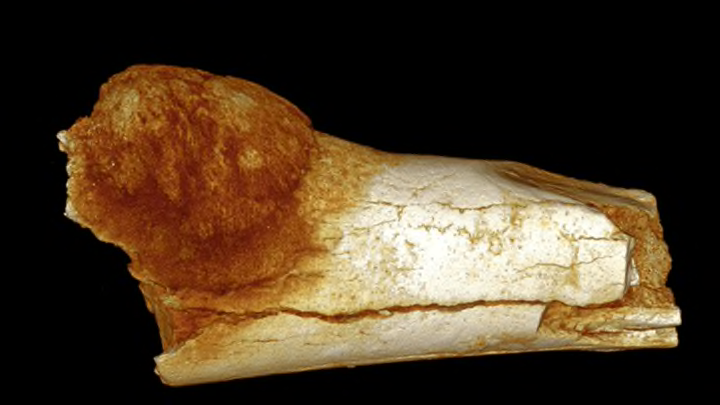Scientists Find the Earliest Human Cancer in a 1.7-Million-Year-Old Toe

While scanning prehistoric human fossils found near Johannesburg at the Swartkrans National Heritage Site, a team of researchers from the Universities of Central Lancashire and Witwatersrand discovered what they now believe to be the oldest evidence of cancer ever found in a human ancestor. According to a study in the South African Journal of Science, the 1.7-million-year-old cancer was found inside the fossilized toe of a hominid.
Prior to this discovery, the oldest known evidence of hominin cancer dated back to around 3000 BCE. In an interview with The Telegraph, Central Lancashire biological and forensic anthropology expert Patrick Randolph-Quinney said that the researchers noticed that the inside of the fossil was opaque when it should have been hollow. They examined the fossil using micro-focus X-ray computed tomography and then compared it to the biopsies of cancer patients. They identified the growth as an osteosarcoma, a rare type of cancer that starts in bone. Osteosarcomas are usually found around the knee or in the long bones of the arms or legs.
The researchers say that bone destruction is rare, so they're not sure whether or not the tumor was fatal. "We don’t know whether it was the cancer that killed him or something else," Randolph-Quinney said. "It would have certainly affected his mobility, so it’s just as likely he was killed by a saber-toothed tiger."
The age of the tumor suggests that the origin of cancer is more complicated than previously thought. "Whilst most modern human malignancies are thought to be caused by environmental agents of a chemical nature, the evidence for this is not entirely conclusive," the researchers write [PDF]. "The expression of malignant osteosarcoma in the Swartkrans SK 7923 specimen indicates that whilst the explosion of malignancy incidence is clearly correlated with the hazards of the modern world and increased life expectancy, primary bone tumors evidently occurred throughout history."
[h/t Telegraph]